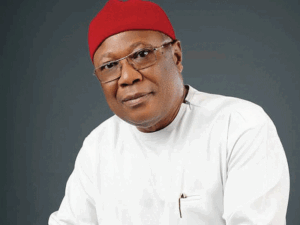In a recent briefing with journalists in Abakaliki, the Ebonyi State Government revealed a snapshot of the state’s judicial landscape over the past two years, highlighting a mix of progress and persistent challenges. The Attorney-General and Commissioner for Justice, Mr. Ben Odoh, disclosed that the Ministry of Justice recorded a total of 590 criminal cases and 897 civil matters within the period. Out of the criminal cases, 122 have been concluded, while 468 remain pending. In the realm of civil litigation, 445 cases have reached resolution, leaving 452 still in process.
Odoh explained that the current administration has not only been focused on case resolution but has also been proactive in legislative reforms, with 26 new laws enacted in pursuit of peace and justice across the state. These laws, he said, are integral to strengthening the legal infrastructure and aligning governance with evolving societal needs.
Part of the ministry’s strides in improving access to justice includes the establishment of a Citizens Mediation Centre aimed at serving indigent individuals who cannot afford legal representation. So far, the center has successfully handled 86 cases at no cost, giving vulnerable citizens an avenue to seek redress without financial strain.
Additionally, a Multi-Door Court system has been introduced, providing an alternative dispute resolution mechanism for citizens who can afford legal services but prefer to avoid the procedural rigidity of traditional courtrooms. This system is designed for parties seeking quicker, less adversarial means of resolving their legal issues.
The Commissioner also emphasized the government’s commitment to social justice through the creation of a Sexual Gender-Based Violence Response Department. Established in collaboration with the office of the First Lady, the department serves as a coordinated response hub for cases involving sexual and gender-based violence, reflecting a growing recognition of the need for targeted legal and emotional support services in such cases.
According to Odoh, these reforms and structures are part of a broader effort to create a more equitable and efficient justice delivery system in Ebonyi State.




